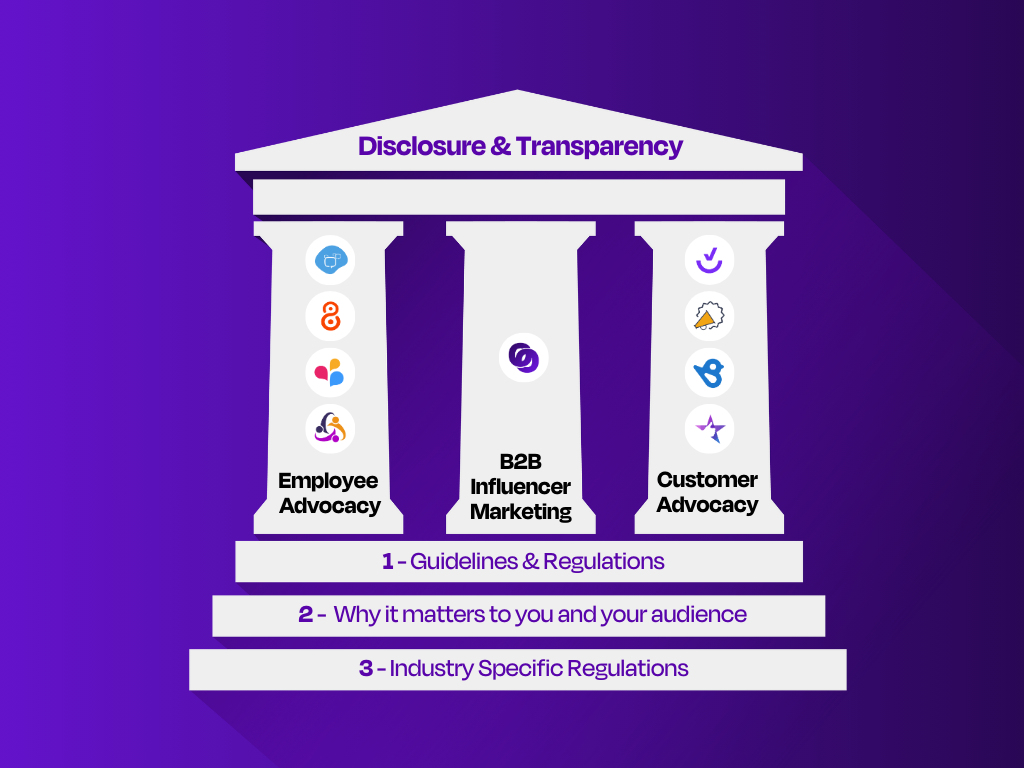Brand Advocacy: Truth in Disclosure & Transparency
Hector Forwood • 2024-04-05
Why worry about this? Well, it keeps you on the right side of the regulations & will help get you the metrics you want. & yes, this is a lot….however there's providers in the employee/customer advocacy space, plus of course us here at Flooencer, ready to help you with this.
Truth in Disclosure & Transparency.
1 / Guidelines & Regulations.
The Federal Trade Commission’s (FTC) guidelines in the US, are a transparency reference point for influencer marketing regulations around the world. Many countries have adopted similar principles focused on disclosure and truth in advertising (eg ASA in the UK, Autocontrol in Spain, DGCCRF in France).
You need to be aware of them and unfortunately there'll be more than 3 if you're operating worldwide.
Starter for 10: AI is your friend here: Ask Chat GPT/Gemini: "What's the ASA/FTC guidelines equivalent in [Country]"?
Customers should be able to easily understand when a customer advocate is affiliated with your brand and is potentially receiving some form of compensation or reward for their promotion.
You cannot think the following is your customer/employee/external influencer’s responsibility.
If customers, employees or external influencers receive any form of compensation or incentive for their advocacy efforts, they must disclose that connection. This could include things like commissions, bonuses, gifts, discounts, experiences, even early access).
Most guidelines state that any endorsements, must be clearly and conspicuously disclosed to consumers. Inserting #ad or #sponsored….., in the case of EA - #worksat[Company Name]
You are also going to have your own guidelines for employees, customers and external SME’s. (hint….future blog post).
Useful link for the comments : https://www.ftc.gov/system/files/documents/plain-language/1001a-influencer-guide-508_1.pdf
2 / Why bother?
You cannot think “Nobody’s looking out for this stuff, the “post police” or my prospect!”
Wrong, Influencers may not genuinely connect with the product or service, and inauthentic promotions can turn off consumers. In the worst case, it can damage the influencer's credibility and your brand's reputation. Plus you’ll avoid enforcement actions, civil penalties and expensive corrective advertising and staying on the right side of anti bribery and corruption laws.
3 / Industry-Specific Regulations
Certain industries may have additional regulations that apply to influencer marketing. For example, healthcare and financial services often have stricter guidelines around marketing communications. Be sure to research any industry-specific regulations that might impact your campaign. Hint: as a starting point. AI is your friend here: Ask Chat GPT/Gemini
See More Posts
Cardy
Copyright © 2021 Govest, Inc. All rights reserved.

